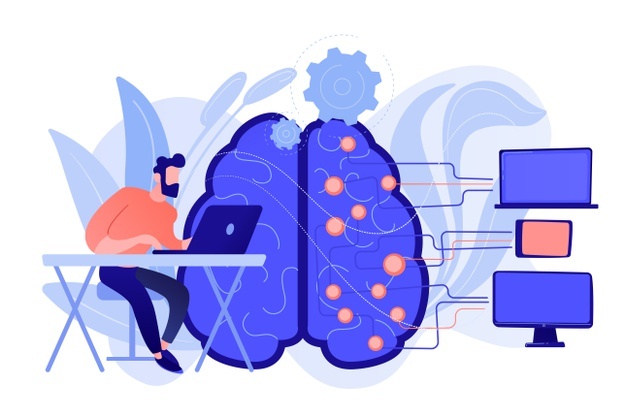How AI Is Now Influencing The Educational Sector?
Artificial intelligence is becoming a part of our everyday lives and has defined its position in various industries. Artificial intelligence is no longer restricted to science fiction movies. It has become a part of our daily lives and our schools. We are just beginning to notice the presence of AI in the field of education, even though there are several AI tools on the market, such as Google Assistant, Amazon Alexa, and Apple’s Siri.
Assignment writing company explains that colleges and educational institutions should incorporate artificial intelligence courses into their curricula as soon as possible. Artificial intelligence should be taught to all students, not only computer science majors. Teaching “people skills” such as creativity, emotional intelligence, and social intelligence is also an excellent concept. These abilities will be highly prized in the workplace of the future.
The Implications of Artificial Intelligence in Education

The widespread usage of technology in education is changing the entire scenario that we used to know. Artificial Intelligence (AI) is one reliable and widespread approach that enables tutors, professors, and learning groups to customize their experiences. Artificial intelligence technologies will push educational possibilities and experiences to new heights. These are only a handful of the ways AI will impact schooling.
-
Personalization:
It may be quite a difficult situation for a single professor to find out the right way to fulfill the requirements of every kid in his or her classroom: remedial students, advanced students, ESL students, and students with disabilities all require equal access to learning. Now, these AI systems can readily adjust to each student’s particular learning requirements and focus education based on their strengths and shortcomings, resulting in less useless labor for teachers and a more meaningful learning experience for students.
-
Teachers with Personalized Artificial Intelligence:
This tutor type might be used to develop a personal AI teaching assistance for a course. It would answer fundamental inquiries about a topic, such as when to submit assignments or meet deadlines, assist students in staying on track, and give university information. These AI techniques for the professor and teachers are compatible with speech recognition software. Students would be able to speak directly to them as a result of this. In order to adapt replies to pupils, these AI tutors can also use extra data such as personality test results.
-
Making learning more fun:
AI techniques may also be used to engage students in learning by making it more enjoyable. It’s clear that kids who are having fun while learning retains more information. This improves the quality of the learning experience. AI-powered learning platforms will soon be able to combine interactive technologies that engage learners, alleviating boredom and lack of motivation.
-
Grading is now easier:
This is undoubtedly one of the most time-consuming aspects of teaching, taking time away from more significant and purposeful endeavors such as lesson planning and professional development. Machines have grown to the point where they can do much more than merely score a test with an answer key; they can accumulate statistics on how students did and even evaluate more abstract assessments like essays.
-
Get feedback on the course’s quality:
Based on student performance on tests, AI may detect instructional gaps in course content. For example, if a substantial proportion of students wrongly answer a question, AI may focus in on the exact facts or ideas that students are lacking, allowing educators to make targeted changes in materials and approaches.
Challenges Of Implicating AI In Educational Sectors

-
Technology Is Expensive
AI schooling is too pricey. As new technology becomes accessible, budgets will need to be increased. AI software maintenance expenses will need to be considered by schools. AI-augmented education may be challenging to deploy in schools with low finances. They will not be able to automate administrative chores that consume staff time.
-
Cyber-attacks against artificial intelligence software are fairly widespread
Hackers are always seeking new ways to get access to this massive database. Consider a database that has been hacked and contains all of the information of kids, instructors, parents, and administrators. If the victims of cyber-attacks personal information are made public, this might be immensely harmful. A school’s only option is to install data security software. Despite this, hackers are occasionally able to get access to schools.
-
Educators are not fully prepared for AI-powered education
It is critical to address the present issues that instructors confront. Teachers will always be at the forefront of education because the creative and social-emotional components of teaching cannot be overlooked. In this lane, AI-powered education software must have a firm foundation in cognition, classrooms, and large-scale exam results. Several nations are developing measures to help the national EdTech industry boost innovation and strengthen efforts while empowering teachers and schools.
- With the introduction of AI, developing nations may be more vulnerable to social, technical, and economic differences. To provide the circumstances for the deployment of innovative techniques that leverage AI to increase learning, key challenges such as a lack of fundamental technical infrastructure must be addressed.
The Bottom Line
Personalization is a top-of-the-list fact for anyone who follows worldwide trends in many sectors. This is now feasible because to artificial intelligence, which is beneficial to schooling. Artificial intelligence (AI) assists teachers in improving their abilities by delivering all of the necessary information.
Teachers can also produce information that is personally relevant to their pupils while assuring personal learning. It automates processes, allowing teachers to spend more time educating and impacting pupils.
The adoption of Artificial Intelligence would undoubtedly minimize the stressful work and physical demands of imparting education to kids. Teachers may now simply outsource their aims and reach outcomes set for each and every student’s performance, thanks to the usage of Artificial Intelligence. As a result, instructors would play a vital role in providing and improving the learning experience for students through the application of Artificial Intelligence.

















